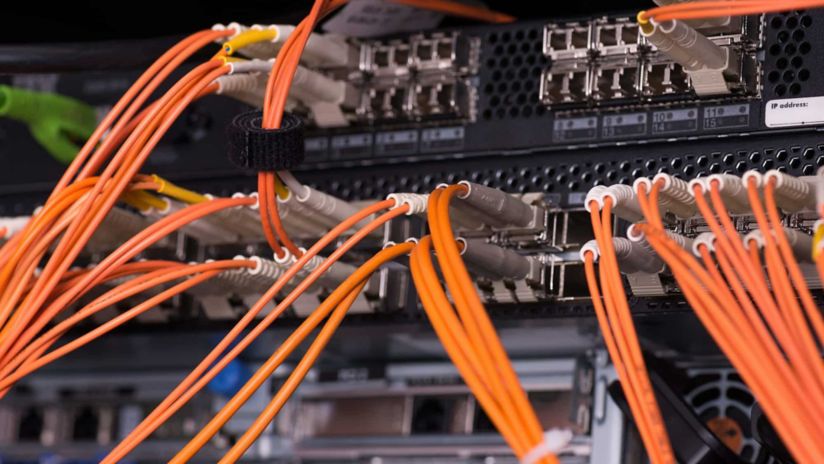Safer online and the new normal
Crisis has always been a powerful catalyst for societal change and there is no doubt COVID-19 is proving the same. It is also serving to underscore the critical importance of connectivity.

Mandatory social distancing and self-isolation means healthcare, education, work and commerce and even staying in touch with friends and family are now largely being done online. The amazing technology enabling our connected world is on full display and we are all fortunate the innovation in network connectivity – and the digital tools and services it enables – has come so far. Few of the changes and adaptations to how we are working, studying and socialising today would be possible without it.
Staying safe during COVID, including online
At the same time, it is important to recognise we are entering a more cyber vulnerable world. It comes as no surprise a key focus of this week’s Privacy Awareness Week is the paramount importance of safeguarding our personal information and data because even as amazing new opportunities emerge, one significant risk remains – the critical need to protect ourselves online.
As an organisation responsible for enabling so much of today’s connectivity, and as one of Australia’s largest companies, we certainly feel the responsibility to continue to help our customers to stay connected. We also feel the responsibility to keep our customers safe from cyber risk and cyber attack which, unfortunately, remain a clear and present danger.
Even before COVID-19, cyber security was a large and growing area of risk that went to the very heart of the safety and security of the nation, of every family and business.
COVID-19 has amplified that risk because so many of us are now working and studying from home. This means activities we used to undertake within the traditional firewalls of enterprises, governments and education institutions are now being completed from home over VPNs.
The level of risk has never been higher – the Australian Cyber Security Centre says almost one in three Australian adults has been a victim of cybercrime, such as fraud, identity theft, malware and ransomware. A recent study commissioned by Microsoft also showed cyber incidents are estimated to cost Australian businesses $29 billion annually in direct economic losses.
Cyber threats continue to shift, evolve and increase and as the threats evolve so must our response. It requires a coordinated response between government, law enforcement, industry and the community. The Australian Government deserves real credit for the leadership it has shown on this issue including the work it has been leading in the development of Australia’s 2020 Cyber Security Strategy. Chairing the Cyber Security Industry Advisory Panel we have had the opportunity to work closely with the Government on recommendations for developing and maintaining sovereign cyber resilience and maximising the benefits to all Australians of a connected global economy.
Robust cyber security will enhance Australia’s national security as well as our economic growth and international competitiveness. This is crucial as one of the clear implications of COVID-19 is a further acceleration of the digitisation of our nation.
Cleaner pipes
With this focus on the national picture, Telstra has been working on a Cleaner Pipes initiative to further reduce instances of customer data being compromised through malware, ransomware and phishing.
Cleaner Pipes involves significantly upscaling our Domain Name System (DNS) filtering, where millions of malware communications are being proactively and automatically blocked every week as they try to cross Telstra’s infrastructure. This action reduces the impact of cyber threats on millions of Telstra’s customers including stopping the theft of personal data, financial losses, fraudulent activity and users’ computers being infected with malware. We know many consumers and small businesses do not have the resources to adequately protect themselves. If customers click on a link to a malicious or suspicious site that has been blocked, they will be presented with a webpage alerting them to what has happened.
Cleaner Pipes means we are able to more actively block cyber threats on our network that would compromise the safety of our customers’ personal information. While it will not completely eliminate the risk, or substitute appropriate threat protection, it will contribute to significantly reducing the volumes and impact.
Telstra has been trialling this initiative for twelve months, including blocking the command and control communications of botnets and malware and stopping the downloading of remote access trojans, backdoors and banking trojans.
Cleaner Pipes complements other ongoing projects dedicated to reducing malicious SMS and scam calls where Telstra currently blocks more than half a million scam calls per month from reaching customers. We are also now working to implement new technical controls across our voice and SMS platforms to further reduce this harm. This aligns with work across the telecommunications sector including the creation of a draft industry code to reduce scam calls, which is currently open for public comment.
Everything connected
I have often said that in the near future the confluence of digital technologies and connectivity would mean everything that could be connected would be connected. COVID-19 is driving a sudden acceleration of that idea and the reality of a connected world (be it tele-health or online education, working from home or online dinner parties) is with us now and part of everyday life for millions of Australians. But if COVID-19 is forcing the pace and scale of innovation it is also underscoring the critical importance of cyber security.
In an era where staying at home means staying safe, staying safe and secure online has also never been more important.


